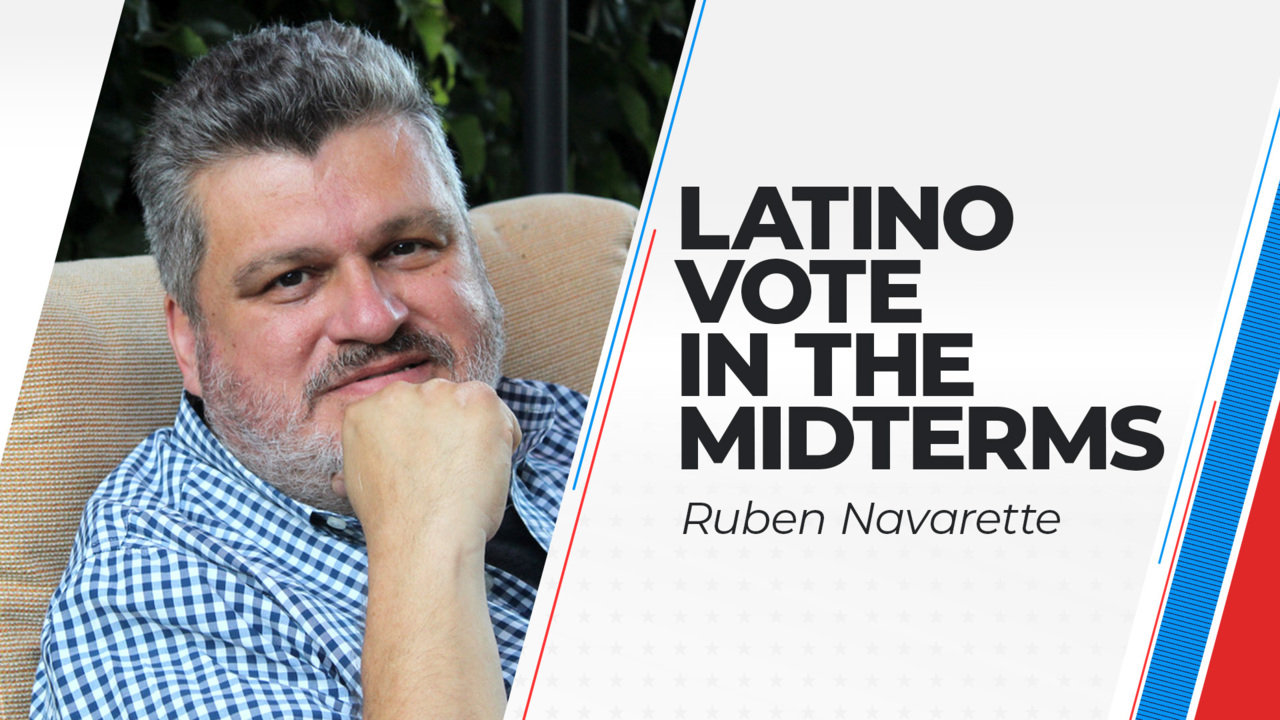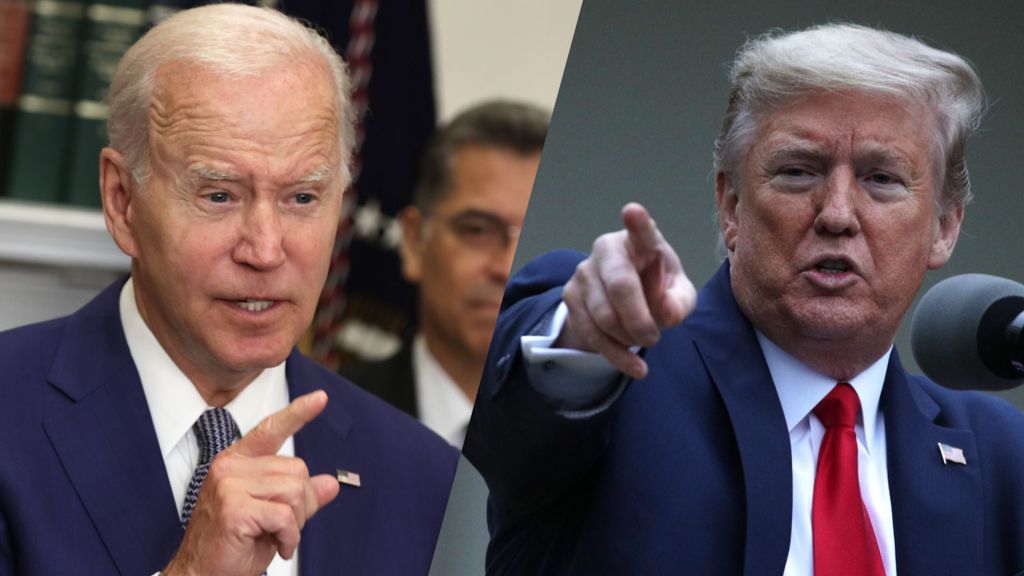
SIMONE DEL ROSARIO: We’ve heard over and over that Latinos are not a monolith. And that is particularly clear in states like Florida, Nevada and Arizona. Now, we’re currently waiting for results in those last two states where Latinos have been seriously courted in recent weeks.
SHANNON LONGWORTH: Columnist Ruben Navarrette is here to discuss which strategies seem to have been effective in securing as much of the Latino vote as possible. Rubin, is it really all about inflation, since that seems to be such a universal concern?
RUBEN NAVARRETTE | COLUMNIST: So is that question that was the major issue for this campaign, Latino voters are nothing if not assimilate into the mainstream, they care about what other kinds of issues other people care about as well? Clearly, that was an issue along with crime along with other aspects of the economy, even the border crisis weighed on the minds of many Latino voters. But the main reason that this became such a big story, that the Republicans had such an a shot at Latino votes, is democratic neglect the fact the Democratic Party had forgotten how to speak to Latino voters, they’ve taken us for granted, they no longer cared about having us in conversation asking us what issues we cared about. They forgot how to listen to us. And they created an opportunity for Republicans now going forward. What will be interesting to watch is can the Republicans keep this level of support? I’m not sure they can, because it just sort of fell into their lap and they don’t quite know what to do with it.
DEL ROSARIO: Yeah, Nevada, Latinos have historically been key to electing Democrats there. The Democratic candidate Catherine Cortez Masto. herself, is the first Latina senator, why do you think she’s lost some of the community’s support?
NAVARETTE: Well, it’s interesting, you know, when you hand over your campaign, I have some sources in Las Vegas and political consultants have spoken to there. They say on the one hand, she’s done a wonderful job of campaigning, she understands retail politics, and she did a great job there. But also the fact that she handed over so much of her campaign, to the national folks out of Washington, they basically ran it for her. And they tried to use the same playbook they were using around the country. So for instance, if they thought that abortion was a big issue around the country, they decide to take that issue to Nevada, and I’m sorry for Latinos in Nevada, they’re concerned about, as we said, the economy and other issues, they’re not going to be motivated by abortion. So clearly, the lesson going forward, is that the Democratic Party has to do more than just simply nominate Latinos, they also have to let Latinos run their own campaigns.
LONGWORTH: What are your thoughts on the results that we’ve seen in Texas and Florida?
NAVARETTE: So, you know, in both those states, I think the governor’s race story around the country has been that the governor’s races were decided fairly early in the evening, I think that Ron DeSantis, and Greg Abbott are, are stars in their party in the GOP, they’re going to continue to be very prominent, going forward, they both have made a lot of the immigration issue. They both famously sent migrants from the border up to the northeast, to make a statement. So they’re going to continue to play a major role in the in the party going forward. In terms of the individual races, I think there were some individual races in Texas, that we were looking at, because they put up conservative Latinos, for instance, you know, you’ve heard about this squad. And there was this talk that the Republicans would have the quad, which was for Latinas running as Republicans, and so far tonight, it looks like to have one and two have lost. So you’re not going to have, you know, four of them. You may have a couple more Latinos in Congress who are Republicans, it’s a big deal to make your story. But again, the voters had their final say, and they decided that not all of these people were ready for primetime.
DEL ROSARIO: Is there a risk for the monolith conversation to go too far? The other way? Obviously, a lot of talk about Democrats treating Latinos as one entity. But do you see Republicans maybe making that same mistake?
NAVARETTE: I do. I think that the parties typically are run by the same people. I think there are a bunch of Ivy Leaguers who typically don’t know much about Latinos, they don’t have much exposure to Latinos, they work within a black and white paradigm. And whether you’re got a D after name or an R after name, Neither party has done right by Latinos. It was interesting poll recently it said that 40% of Latino voters were undecided. This was about two weeks before the election, late in the process. 40% had decided they didn’t know who to vote for because they when poll they found the parties were very similar. One of the things that we pride ourselves here at straighter news is the idea that neither party has a monopoly on the truth. And certainly Latinos believe that they’re up for grabs. They’re in the center. They’re moderates disagree that they’re liberal. They are Republicans, they’re liberal Republicans, when they’re Democrats. They’re conservative Democrats. They don’t like the extremes. If you’re Latino, and you hear somebody in the left talking about the fund, the police count me out, if you talk on the right, and they’re storming the Capitol on January 6, count me out. So Latinos are happy in the center. That’s where they that’s where we belong. That’s where we’re comfortable.
DEL ROSARIO: Are we seeing that same representation in their leadership when they do end up in elected positions?
NAVARETTE: No, that’s a good question. No, the answer’s no. The Democratic Party typically has a run roughshod over the community by CO opting various leaders as Democrats. There are many more Democrat Latinos in Congress than there are Republican Latinos. The Republicans, in fact have to have their own caucus because the democratic run Congressional Hispanic Caucus, as said that’s not necessarily friendly to Republicans. It’s not a bipartisan organization for the most part. And so to that end, the Democratic Party sees us as monolithic, which is we’re always Democrat, it’s been said that Latinos and we’re talking about 62 million Latinos in this country at 90% of the population on its way 25% of the population, their swing voters who decide elections, the Democratic Party doesn’t give us credit for or respect us for our complexities for the fact that we are likely to see issues differently depending on where we live or what generation we belong to. They just see us as baptized Catholic and Democrat, and they expect us to stay that way. That’s not happening.
DEL ROSARIO: Columnists Ruben Navarrette, thank you so much for your time today and your insight.
NAVARETTE: Thank you. My pleasure.
TRANSCRIPT GENERATED AUTOMATICALLY






